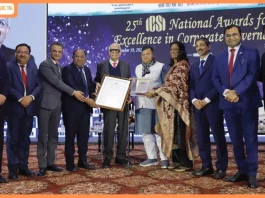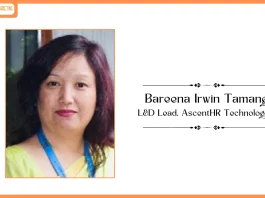About Amanda
Amanda Puravankara is the director of one of India’s largest real estate development company, Provident Housing Limited. Additionally she also wears the hat of a ‘30-under-30 ‘entrepreneur, in the field of holistic wellness which she feels strongly about and wants to veer the nation’s youth in that direction. Post completing her undergraduate with Honors from the University of Southampton, England, her first job was with a holistic healing Centre as she was keen to learn the ropes on her own rather than the family business. She has been involved in the business from an early age and has had the best education in Real Estate while interning every summer with Puravankara and shadowing her father, the Founder and Chairman of Puravankara Limited, Mr Ravi Puravankara. Coming from a business family, she has carved a niche for herself in the organization and has learned from her father that it is only hard work that gets you where you want to be. She understands the needs of the teeming millions and is aligned with Provident’s vision about providing people with their dream homes.
Amanda was instrumental in the organizational restructure the company underwent, in line with the strategy of being a lean well-run firm. Currently she is involved in the end-to-end of the product development lifecycle, right from land acquisition, concept & design and market strategies. Provident is now one of the best premium affordable housing brands in the nation.
Apart from her busy schedule, Amanda is very passionate about travelling, fitness and also runs ‘Devdan Trust’ which works in the field of marginalized women and children.
Passionate in Marketing caught up with Ms. Amanda to know more about the trend among millennials regarding home buying.
1. How has Provident Housing been innovating itself to connect with its evolving customers?
Customer-centricity is inherent to Provident Housing’s ethos. We have continued to adapt our business strategies to foster rewarding relationships with our customers and meet their evolving desires. As a brand, we knew that, amid the existing health regulations, a digital transformation would be key to build and strengthen our connection with the customers.
The key innovations that we launched during this period include ‘BookMyHome’ and virtual site tours. The former is an online platform which enabled a customer to browse through our residential projects and discover their dream home. We leveraged data from customer analytics and tailored messages to ensure that our diverse range of customers received relevant information only. Our CRM team was equipped with the necessary virtual tools to resolve customer queries and concerns seamlessly. Essentially, our goal was to ensure that every customer interaction was frictionless, drove value and left them satisfied.
During our 40+ year journey as a brand, customer experience has continued to remain one of our core competencies. This remains true for Provident Housing as well. Our affordable premium offerings make us accessible to a larger demographic. Hence, we constantly try to ensure a positive relationship with this group through data-driven business decisions and authentic communication through relevant channels.
2. Do you notice any trend among millennials with respect to home buying?
One of the most pertinent consequences of the pandemic is real estate strengthening its position as a valuable asset class. With uncertainties looming around every corner, we are all in search of a space that provides safety and security – and homes offer exactly that. It was interesting to note that there was an increased affinity among millennials towards home buying. With proximity to work no longer being a factor coupled with a highly conducive realty landscape and accommodative RBI policies, millennials are now keen to enter and explore the real estate market. These first-time homebuyers are technologically proficient, in search of tranquil spaces, conscious about the brands that they associate with and willing to invest in an asset only for competitive prices. Our offerings through Provident Housing are designed and marketed in line with these considerations. As a customer-focused brand, we keep an ear to the ground and are confident that our projects will be a good match for new-age homebuyers.
3. You have been advocating about gender diversity, equality at the workplace and creating equal opportunities for women. How does Puravankara stand out?
Since its inception, Puravankara has cultivated a culture that insists on inclusion within our workforce and celebrates diversity. Incorporating D&I in our business is not just another corporate function; it is simply the right thing to do. Yes, there are definite moral and social imperatives associated with creating equal opportunities, but it is also good for business. To thrive and be relevant in today’s dynamic market, companies need to build a diverse workforce that promotes cohesion. At Puravankara, we believe that conversations around D&I are inadequate and that real change comes when we lead by example. We have developed systems and checkpoints to ensure fair and equal representation of women across all divisions of the company. We have created avenues for employees’ professional development from varied backgrounds and introduced flexible policies to address their differential needs.
While I am proud of our company’s commitment to building a diverse and inclusive workforce, I am also aware that we can do better. We will continue to raise the bar, build cultural awareness, never be complacent with our achievements and push our doors wide open to every person who has the merit to get the job done.
4. There seems to be some myth about women in the real estate business. What has been your experience and how do you see the sector evolving creating more opportunities for women?
Real estate has traditionally been a male-dominated sector. Pervasive myths about women in business have seeped into the RE industry as well. These include but are not limited to women not being ‘not suited’ for leadership positions and empowering women will be a ‘disadvantage’ for men. Fortunately, these archaic myths have not held women back.
To be perfectly candid, Puravankara is an organization that has created a truly inclusive work culture and celebrates merit. Hence, as a woman leader, I have not had to overcome barriers to a scale that some of my other industry peers must have. Every day I try to use the privilege of my position to empower my women colleagues and create a space of support. I believe that this is important to understand and resolve any gender discrepancies that might exist within the workplace.
Although gender representation within the real estate industry is far from ideal, I see a positive shift in the ratio. Over the past decade, women have taken up several influential positions within the industry and have started to tip the scale in the favour of equity. We have a long way to go but I am confident that enabling more women to take up leadership roles within the real estate will be a good place to start.
5. Do you see the female population of the country playing any role in the decision of home buying? If yes, what has been the change driver and how is Puravankara/Provident Housing leveraging?
Our experience shows us that the lady of the house is the ultimate decision-maker while finalising a home, even if she may not necessarily be the ‘primary applicant’. Having said that, the recent uptick in the number of women homebuyers has been encouraging for me, as a real estate industry player as well as a woman. This is indicative of the fact that women are no longer on the sidelines and are taking charge of investments that can secure their financial future.
As a brand that stands for gender equality, we have introduced measures to ensure a more equitable representation with respect to property ownership. One of our recent initiatives is ‘MyPinkHomes’, which is a dedicated online platform for aspiring women homebuyers. We continue to enhance our projects and user experience to make real estate investments better accessible to women. Our efforts are aimed at enabling more women to enter the market and balance the scale of ownership.
6. Can you tell us something about the campaign ‘EnterLikeASuperStar’ and the concept behind?
Provident was launched in 2008 with the idea of catering to the first home buyers in the market. Understanding their aspirations, offering them the best quality homes and making luxury accessible for the first home buyers, were some of the key ideas behind the launch of the brand.
With #EnterLikeASuperstar, we wanted to warm-up the idea of home buying, especially for first home buyers, and highlight the fact that even if it’s your first ‘affordable’ home, if you enter a Provident home, you will feel like a Superstar!
The target group of Provident is the age group 28-45, predominantly first-time homebuyers. Our research highlighted that this group are cautious with investment decisions and wish to opt for only the best option in the market. With this campaign, we wished to reassure the buyers that they have indeed chosen a home that is aligned with their aspirations. Every Provident project is theme-based and comes with an exhaustive list of unique lifestyle amenities and location advantages.
The idea of weaving music and dance challenge into the campaign was to add an element of fun and creativity into the home buying experience, which otherwise may be considered an arduous process. We wanted to truly instil the feeling of joy that when one experiences when they buy their first home.
7. Being one of the promoters of the company, how exciting was it for you to kick off the challenge as one of the first participants? How was the response from the audience?
I am passionate about dancing, and it is one of my favourite outlets of expression. So, I was overjoyed to kick off the challenge and get the ball rolling.
It was humbling to see that the campaign was met with a positive response from the audience. The campaign was instrumental in ensuring that Provident enjoyed the highest Share Of Voice (SOV), Share Of Engagement (SOE) and Share Of Reach (SOR), during February.







